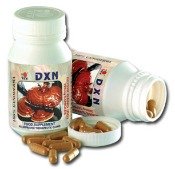Chronic Indigestion Or Dyspepsia
Signs and symptoms of chronic indigestion or dyspepsia may mean tumor growth in your stomach or colon. Dyspepsia symptoms are caused when the protective lining of your digestive system is constantly in contact with stomach acids. The acids can irritate the sensitive lining causing swelling and pain.
You should not shrug it off if you're experiencing frequent and constant dyspepsia pain lately. Going to a doctor becomes more urgent if it is accompanied with other signs such as irregular changes in how you move your bowel.
Indigestion is a medical condition indicated by chronic or recurrent pain in the upper abdomen.
It is also known as dyspepsia. Sometimes, dyspepsia symptoms can only mean something as simple as overeating.
But dyspepsia can also mean other important medical conditions such as heart attack. If indigestion is chronic and occurs with unexplained pain, it can mean stomach and colon cancers.
In fact, prevention of such types involves learning the different symptoms of indigestion.
The 4 Signs and Symptoms
Symptoms include. . .
1. Feeling of fullness during a meal. This leads to your inability or difficulty to finish the meal,
2. Chronic and bothersome fullness after a meal. It may feel like the food is in your stomach for too long,
3. Chronic mild to severe pain. You feel the indigestion pain between the lower end of the chest bone and the navel which is called epigastric area.
4. Chronic burning or an unpleasant sensation of heat. You feel the hot sensation in the epigastric area.
If you experience any of these signs and symptoms of indigestion that last long and in increasing frequency, see your doctor. Other chronic signs and symptoms of indigestion are nausea and bloating.
Indigestion or dyspepsia is a common problem among adults. It becomes serious when it is chronic indigestion.
What Causes Indigestion
Dyspepsia can be a result of any of the following:
By the way, GERD is also manifested as a trouble swallowing problem, which can also be one of the symptoms of esophageal tumor.
Be aware if dyspepsia symptoms are accompanied by unexplained malaise. If you are over 55 of age, unexpected weight loss that occurs together with severe dyspepsia or chronic indigestion may mean something serious. These symptoms must be looked into by your doctor.
References:
National Digestive Diseases Information
Related Pages You Might Like:
Abnormal Changes in Bowel Movements | Persistent Fever | Excessive Fatigue or Tiredness
Cancer Prevention Home > Symptoms of Cancer > Chronic Dyspepsia
Images Copyright (c) 123RF Stock Photo



